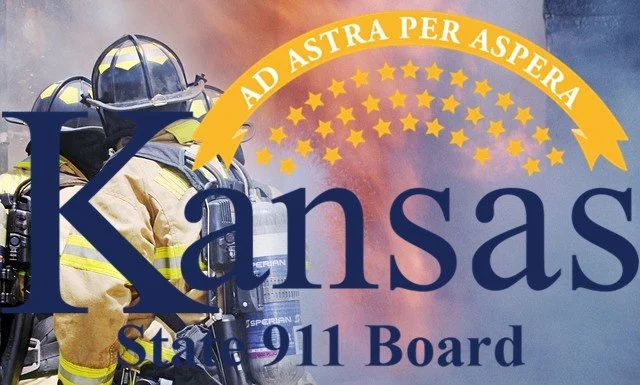FCC Fines Telecommunications Providers For Failing To Timely File 911 Service Reliability Certifications – 2020 Certifications Due October 15th
October 3, 2020 – The FCC’s Enforcement Bureau has announced settlements with seven telecommunications providers that did not file timely 911 service reliability certifications last year. Each settlement requires the telecommunications provider to pay a civil penalty and implement a compliance plan to ensure certification filings are made in future years.
The FCC’s rules require “covered 911 service providers” to take reasonable measures to provide reliable 911 service with respect to circuit diversity, central-office backup power, and diverse network monitoring.[1] Every year by October 15th, these covered 911 service providers must certify to the FCC that they have implemented measures to ensure reliable 911 service.[2] Filings are made online at https://apps2.fcc.gov/rcs911/. The FCC began requiring the annual certification in 2015.
The FCC’s Enforcement Bureau has entered into settlements with seven providers for failing to make the annual certification in 2019:
Alteva of Warwick, LLC admits that it failed to timely file its 2019 annual 911 reliability certification, will implement a compliance plan, and will pay a $3,200 civil penalty.
Arkwest Communications, Inc. admits that it failed to timely file its 2019 annual 911 reliability certification, will implement a compliance plan, and will pay a $2,400 civil penalty.
Cass Telephone Company admits that it failed to timely file its 2019 annual 911 reliability certification, will implement a compliance plan, and will pay a $3,200 civil penalty.
ComSouth Telecommunications, Inc., a subsidiary of Hargray Communications Group, Inc., admits that it failed to timely file its 2019 annual 911 reliability certification, will implement a compliance plan, and will pay a $4,000 civil penalty.
Dumont Telephone Company admits that it failed to timely file its 2019 annual 911 reliability certification, will implement a compliance plan, and will pay a $2,400 civil penalty.
Geneseo Telephone Company admits that it failed to timely file its 2019 annual 911 reliability certification, will implement a compliance plan, and will pay a $2,400 civil penalty.
Union Telephone Company admits that it failed to timely file its 2019 annual 911 reliability certification, will implement a compliance plan, and will pay a $4,000 civil penalty.
Who Is A Covered 911 Service Provider?
A Covered 911 Service Provider is defined as an entity that provides 911, E911, or Next Generation 911 capabilities, such as call routing, automatic location information, automatic number information, or the functional equivalent of those capabilities, directly to a Public Safety Answering Point (PSAP), statewide default answering point, or appropriate local emergency authority, or that operates one or more central offices that directly serve a PSAP.[3] In general terms, these are wireline phone companies that route both wireline and wireless calls to 911 call centers or provide administrative lines directly to 911 call centers. The definition does not include entities that simply provide the capability to originate a 911 call.
What Are The Annual 911 Reliability Certifications?
The FCC’s rules require all covered 911 service providers to take reasonable measures to provide reliable 911 service with respect to circuit diversity, central office backup power, and network monitoring. On an annual basis, covered 911 service providers must certify they have either implemented certain industry-backed best practices or acceptable alternative measures with respect to each of the three elements.[4]
With respect to circuit auditing, a covered 911 service provider must certify whether it has, within the past year:
Conducted diversity audits of critical 911 circuits or equivalent data paths to any PSAP served;
Tagged such critical 911 circuits to reduce the probability of inadvertent loss of diversity in the period between audits; and
Eliminated all single points of failure in critical 911 circuits or equivalent data paths serving each PSAP.
With respect to backup power, for any central office it operates that directly serves a PSAP, a covered 911 service provider must certify whether it:
Provisions backup power through fixed generators, portable generators, batteries, fuel cells, or a combination of these or other such sources to maintain full-service functionality, including network monitoring capabilities, for at least 24 hours at full office load or, if the central office hosts a selective router, at least 72 hours at full office load; provided, however, that any such portable generators shall be readily available within the time it takes the batteries to drain, notwithstanding potential demand for such generators elsewhere in the service provider's network.
Tests and maintains all backup power equipment in such central offices in accordance with the manufacturer's specifications;
Designs backup generators in such central offices for fully automatic operation and for ease of manual operation, when required; and
Designs, installs, and maintains each generator in any central office that is served by more than one backup generator as a stand-alone unit that does not depend on the operation of another generator for proper functioning.
With respect to network monitoring, a covered 911 service provider must certify whether it has, within the past year:
Conducted diversity audits of the aggregation points that it uses to gather network monitoring data in each 911 service area;
Conducted diversity audits of monitoring links between aggregation points and NOCs for each 911 service area in which it operates; and
Implemented physically diverse aggregation points for network monitoring data in each 911 service area and physically diverse monitoring links from such aggregation points to at least one NOC.
Alternatively, for each of the three required categories, a covered 911 service provider may certify that it “has taken alternative measures” to ensure compliance and reliable 911 service. If a covered provider relies on alternative measures, it must include a brief description of the measures and explanation as to why the measures are believed to be sufficient.
**********
[1] 47 C.F.R. § 9.19(b).
[2] 47 C.F.R. § 9.19(c).
[3] See C.F.R. § 9.19(a)(4).
[4] 47 C.F.R. § 1.19(c).





